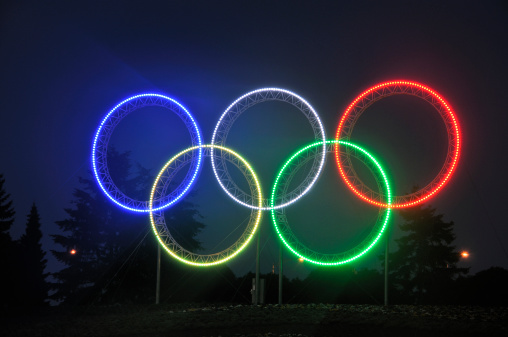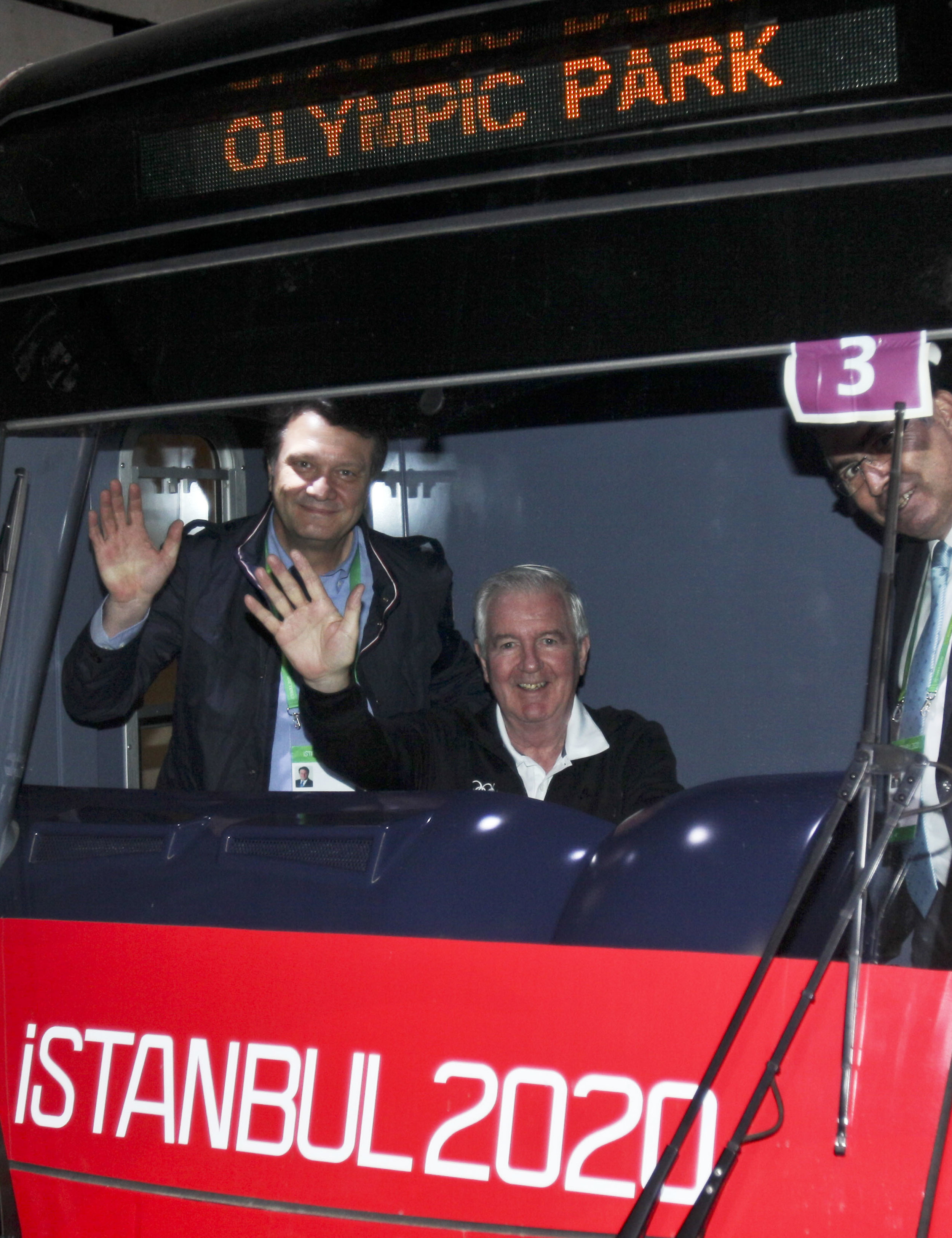The U.S. Olympic Committee formally announced Tuesday it intends to launch a bid for the 2024 Summer Games, by now the news equivalent of dog bites man. It has been evident for months the USOC would be in the game for the Games. The issue is what city, and when the USOC will finally announce its choice from among four: Los Angeles, San Francisco, Boston or Washington, D.C. In that spirit, it’s so interesting that International Olympic Committee president Thomas Bach is now making plans to attend Super Bowl XLIX on Feb. 1 in Glendale, Arizona. Just imagining here: if you came all the way over from the IOC’s base in Switzerland to Arizona, wouldn’t USOC headquarters in Colorado Springs, Colorado, make for a handy place to ask all four U.S. bid cities to come for, say, a briefing on Agenda 2020, the IOC’s just-passed series of initiatives? Then again, if you were the IOC president spending a little time in the United States, of course you would meet with top-tier sponsors in New York — which would also do just fine, too, for a quiet rendezvous on the side with bid-city teams, right?
If you had an active imagination, you might bet this was why, among other reasons, the USOC didn’t choose one city Tuesday from among the four.
No need. No time pressure. Why, after spending nearly a year getting to Tuesday and board of director approval to jump into 2024, force a decision that doesn’t now need to be made? Early next year sometime — that’s plenty fine.
This is a race with a long, long, long way to go. It holds many, many variables.
There are but a few certainties.
This: come 2024 it will have been 22 years since the Olympic Games were in the United States, since the Winter Games in Salt Lake City in 2002, and 28 years since the Summer Games in Atlanta in 1996.
This, too: 2008 Beijing (Asia). 2012 London (Europe). 2016 Rio de Janeiro (South America). 2020 Tokyo (back to Asia). The IOC has a kinda-sorta continental rotation rule that’s not really a rule but if it were one — it would be time in 2024 to go to North America.
And this: in May, NBC paid $7.65 billion dollars to the IOC to extend its right to televise the Games in the United States from 2022 through 2032. At some point, the Olympics are coming back to the United States; the first opportunity is 2024.
Rome jumped in Monday to the 2024 campaign. Fascinating. For the 2020 race, the economy was so bad in Italy that the then-prime minister yanked the Rome bid right out. Since, all across Europe, cities pulled out of the 2022 Winter Games race, mostly because of the economy (and the prospect of spending billions of euros when measured against that $51 billion figure associated with the Sochi 2014 Games).
Italian premier Matteo Renzi told Associated Press the Rome 2024 campaign “isn’t based on great infrastructures or big dreams but rather great people,” adding, “We will be at the vanguard for all the spending controls.”
Berlin or Hamburg are going to jump, if they can get past voters in Germany. With all due respect to the IOC president, who is German, this proved the challenge in Munich, which — after coming up short for 2018 — tried to mount a campaign for 2022 and could not get past the ballot box.
Paris is making noise about 2024. OK, but have the French learned their lessons from the disaster that was the Annecy bid for 2018? Oh, and the European economy.
Budapest? Where the sports leaders are eager but the political establishment not so much? And about that European economy …
Istanbul? The 2020 bid leader, Hasan Arat, is one of the great guys in the Olympic movement. The challenge there is president Recep Tayyip Erdogan. Three weeks ago, at an international conference on justice and rights for women, he said, “You cannot put women and men on equal footing,” and, for good measure, said some forms of work are just not suitable for women: “Give her a shovel and maker her work — this cannot be. It would be primarily against her delicate nature.” One of the 40 planks of Agenda 2020 affirms what’s called Principle 6 of the Olympic movement, which calls for non-discrimination of all sorts.
South Africa. If they win the 2022 Commonwealth Games there, 2024, too?
Doha is often mentioned as a 2024 possibility. The economy is not an issue in Qatar. But there are all kinds of machinations about whether or not Qatar will or won’t bid, or should or shouldn’t. Stay tuned.
At this very early stage — and it needs to be stressed that at the end of 2014 for a vote that won’t be taken until 2017, it is almost comically early in the 2024 race — you see the dominoes potentially lining up.
There is intense interest — again, intense interest — within some of the highest levels of the Olympic movement in seeing a 2024 Games in the U.S.
That was the message Larry Probst, the USOC chairman, put it as plainly as he could — he’s not in the business of giving anything away, nor should he be — in a teleconference Tuesday with reporters.
He said that “all across the board,” from IOC members and leadership, there is encouragement for the Americans, who have spent the past five years — since the debacle that was the Chicago 2016 vote in October 2009 in Copenhagen — promoting humility and repairing relationships in the Olympic sphere.
Or, as Scott Blackmun, the USOC’s chief executive put it, “It is a really good time for us to throw our hat into the ring again.”
So which of the four cities will it be?
“It’s a four-way tie,” Blackmun said on the teleconference, being politically correct, which for now is totally appropriate.
The truth-serum answer: it’s the one that not just can, but will, win.
Which one will that be?
This is where it’s appropriate to ask hard questions, to not hold on to even the slightest bit of romance about what you might think about the cities. Olympic bidding is not for the faint of heart or the naive.
It’s one thing to be able to hang the Olympic rings on bridges or across buildings for postcard-pretty pictures. It’s quite another to actually get stuff done. Little stuff. Big stuff. What do recent events in the cities suggest about that?
It is essential, moreover, to have a team, and in particular charismatic figures, around whom a bid can be built. These are lessons from the Chicago 2016 and New York 2012 bids, and from the winning London 2012 and Rio 2016 teams, too, and this is another reason why the USOC sought Tuesday to buy time.
Another: you can bet that per Agenda 2020 the key watchwords now are sustainability and legacy. Probst, again, responding to a question on that teleconference: “Existing venues are a plus, for sure.”
For now, the USOC is — as it should — playing it cool.
No need to get out in front of the game when, legitimately, time is on the USOC’s side.
This, too, from Probst, and this is yet another lesson from Chicago 2016 and New York 2012, which were bids that were mostly about Chicago and New York. “We want to think about this,” meaning the 2024 city, whichever one it turns out to be, “as America’s bid,” and there you heard first the inkling of a probable bid slogan, “not just that particular city.
“And hopefully we can energize the country, and get the country to engage with the Olympic movement, inspire youth to get involved with sport. So not only do we hope that there are benefits for the individual city but we hope that it will have a positive impact on the country as well.”





